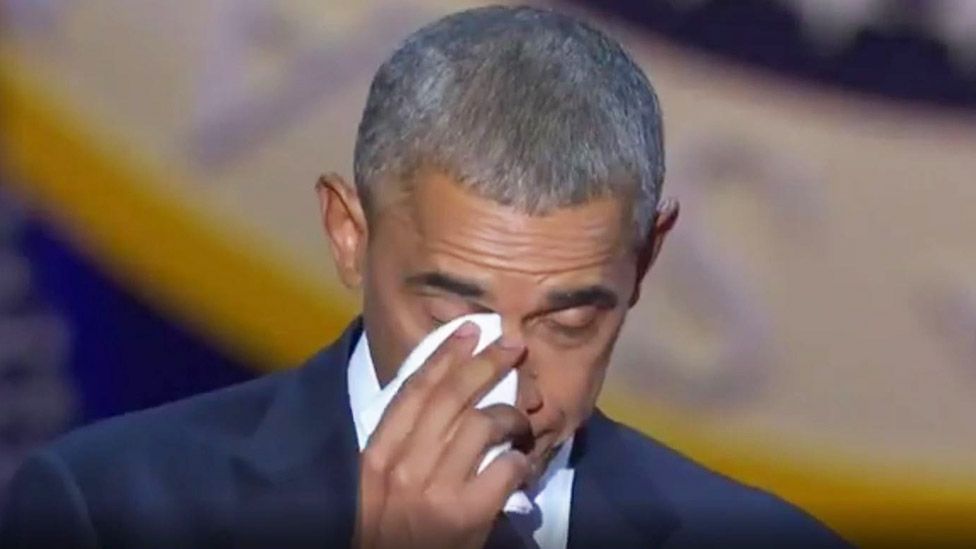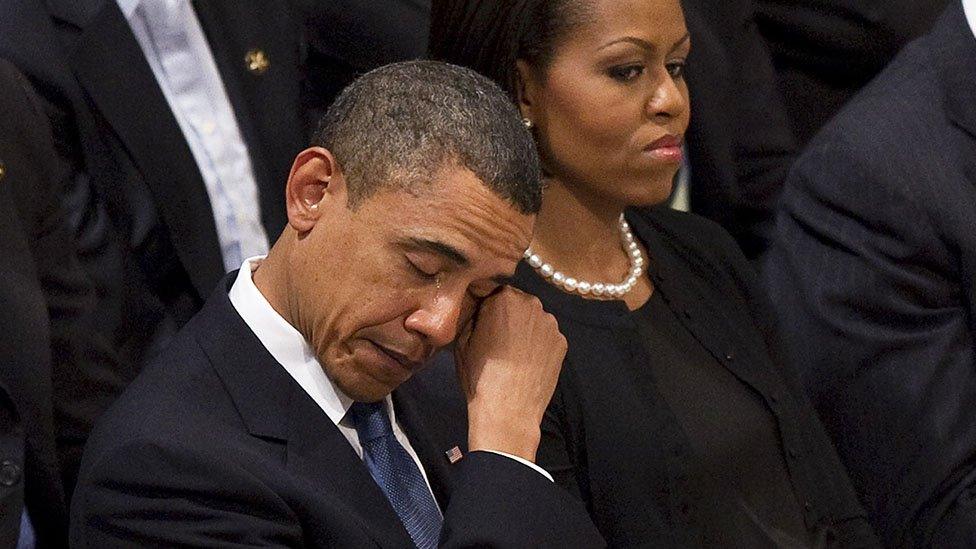Obama's Emotional Intelligence: A Leader's Insight | Google Discover
Can a leader truly be effective without possessing a deep understanding of human emotions? The evidence suggests that emotional intelligence, the capacity to recognize and manage one's own emotions and those of others, is not just a desirable trait in leadership, but a critical one, shaping the very fabric of their influence.
The concept of emotional intelligence, often abbreviated as EI or EQ, has garnered significant attention in recent years, particularly in the context of leadership. The ability to understand, control, and express one's emotions, coupled with the capacity to empathize with others, forms the cornerstone of this crucial skillset. In an era where complex challenges require nuanced solutions, leaders who can effectively navigate the emotional landscape are better positioned to inspire, motivate, and guide their teams to success. As one observer noted, it is good to have a leader who at least seems to understand what emotional and social intelligence is, who can model what skillful behavior looks like.
Doris Kearns Goodwin, in an interview with a British television station in January 2009, highlighted the emotional qualities of President Barack Obama, drawing comparisons that underscored the importance of this dimension of leadership.
- Discover Qarxis Channels On Telegram Latest Updates More
- Kyla Yesenosky Onlyfans Leaks Privacy And Controversy
The following table provides a concise overview of Barack Obama's life and career. It includes key biographical details, professional milestones, and links to a reliable source for further information.
| Full Name | Barack Hussein Obama II |
| Born | August 4, 1961, Honolulu, Hawaii, USA |
| Parents | Barack Obama Sr. and Ann Dunham |
| Education | Columbia University (B.A.), Harvard Law School (J.D.) |
| Career Highlights | Community Organizer, Civil Rights Attorney, Illinois State Senator, U.S. Senator from Illinois, 44th President of the United States |
| Presidency | January 20, 2009 January 20, 2017 |
| Key Policies | Affordable Care Act (Obamacare), American Recovery and Reinvestment Act, Ending the Iraq War |
| Spouse | Michelle Obama |
| Children | Malia and Sasha Obama |
| Legacy | First African-American President of the United States, Nobel Peace Prize laureate (2009) |
| Reference | The White House - Barack Obama |
The culmination of a remarkable political journey was the inauguration of Barack Obama as the 44th President of the United States on January 20th. This event marked a significant moment in American history, symbolizing progress and the evolving definition of leadership. As Nadler suggests, President Obama is more than a political figure; he is a cultural icon.
Throughout his career, Obama has demonstrated a remarkable ability to connect with people on an emotional level. Time magazine even characterized him as "the 21st-century version of the New American." This connection, often attributed to his high level of emotional intelligence, formed the basis of his appeal and influenced his success. His speeches, meticulously crafted and delivered, frequently employed empathy and a deep understanding of human experience, resonating with a wide audience.
- Jameliz Benitez Smith Porn Watch Free Xxx Videos Clips Now
- Movierulz Risks Alternatives For Online Movie Streaming
Barack Obama and speeches given throughout his career. With their help, it was shown that Barack Obama has a high level of emotional intelligence by identifying the characteristics that demonstrate this. Emotional intelligence, leadership, leader, media analysis, Barack Obama.
Many analysts have pointed to Obama's empathy as a key characteristic. Empathy, the ability to understand and share the feelings of others, allows leaders to forge deeper connections and build trust. Obama's ability to connect with people from all walks of life, to understand their concerns, and to articulate their aspirations, played a significant role in his success. This also made him a relatable figure to many people from all over the world. His ability to understand his emotions and those of others enabled him to inspire and sympathize with the people, formulate positive relationships and maintain them for a longer period.
The formative experiences of Obama, detailed in numerous sources, shaped his leadership style. His upbringing, including his parents' separation and his experiences living in different cultural environments, fostered a broad understanding of human nature. This understanding, combined with his sharp intellect and his ability to communicate effectively, made him a powerful force in American politics.
The 2008 candidate Barack Obama was a different man than the president Barack Obama. Candidate Obama could attack the congress for not doing its job. President Obama had to work with congress and their allies in the lobby community. A president alienates them at his peril. Soliciting them can be fruitful and rewarding.
It's absolutely clear to me that Obama understood the nuances of human behavior, allowing him to navigate the complexities of the political landscape with remarkable skill. Furthermore, as Perry notes, even his fellow students at Harvard University recognized his exceptional intellectual capabilities. Obama's understanding of the emotional and social dynamics of leadership was evident.
Furthermore, the cultivation of emotional intelligence is not a static process. It requires ongoing effort and self-reflection. Assessments, feedback, and performance evaluations are critical tools in this developmental journey. Progress should be tracked and adjustments made as needed to ensure that emotional intelligence development is effective.
Michelle Obama, has, in her own right, provided a master class in emotional intelligence, demonstrating how to balance authenticity and strategic thinking. Her ability to connect with people on a personal level, while also advocating for important causes, has further highlighted the power of EI in leadership. It takes work to manage mental health, evenor especiallyfor presidents. And former President Barack Obama gave a few new details about the things that helped him while in office in a recent interview.
The former first lady, psychologists, and even FBI hostage negotiators, all agree on the importance of emotional intelligence in the workplace and other fields. Understanding emotions and the ability to manage them is the key to successful leadership and building strong relationships.
In his speeches, Obama often discussed empathy. It is this trait that set him apart from his peers. Empathy and emotional intelligence are key tools for building connections. Emotional intelligence is the ability of a person to understand, control, and express their emotion and develop interpersonal skills.
Obama's ability to understand his emotions and those of others enabled him to inspire and sympathize with the people, formulate positive relationships and maintain them for a longer period. He was a leader. Emotional intelligence did play a significant role in the effectiveness of his leadership. A leaders effectiveness is based on the relationship between the group members and the leader, that it is emotionally balanced, and the followers understand that they can depend on the leader.

Seven times Barack Obama cried during an emotional eight years BBC News

Forceful And Tearful, Obama Says Goodbye In Emotional Speech WBUR News

Seven times Barack Obama cried during an emotional eight years BBC News